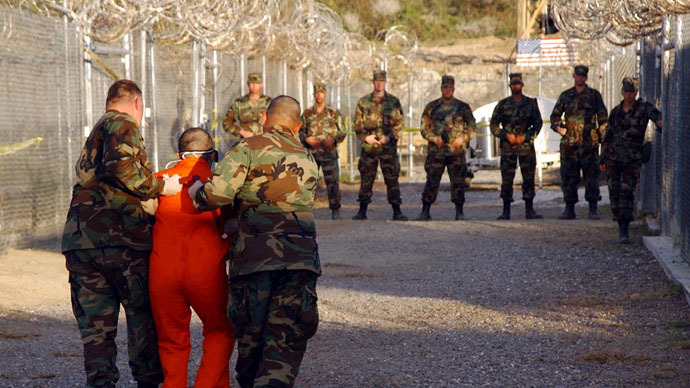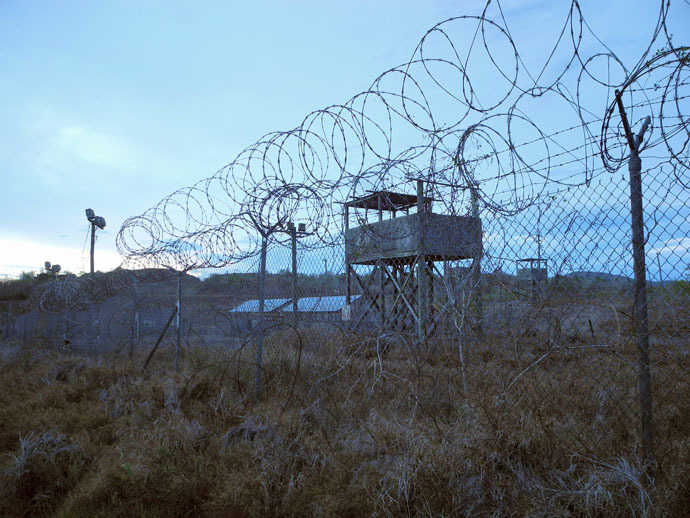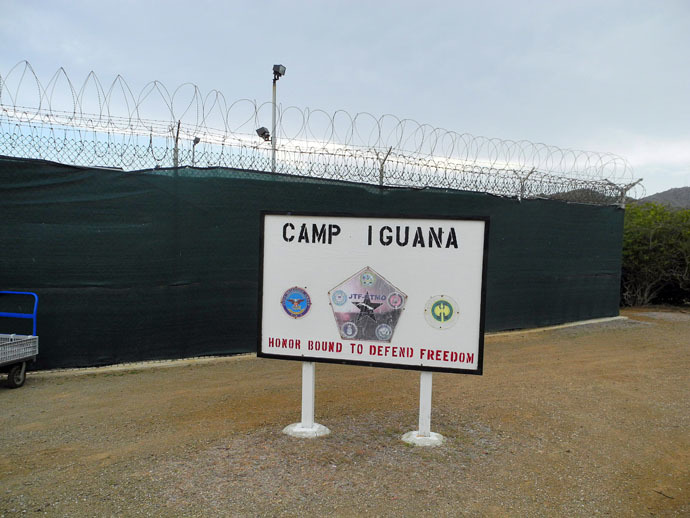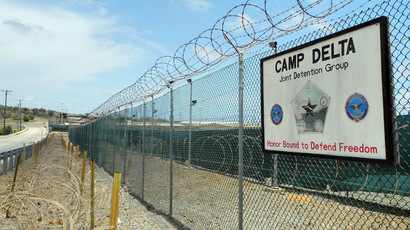US court may allow Guantanamo detainees to challenge forced feedings

A US appeals court showed openness Friday to allowing Guantanamo Bay hunger strikers to challenge force-feeding procedures. Defense attorneys call the method inhumane, but the Obama administration says it is needed to keep order at the prison.
Two judges on a three-judge panel were skeptical of claims made
by government lawyers that the US Court of Appeal for the
District of Columbia Circuit had no jurisdiction over the prison
at a US Navy base in Cuba.
The judges indicated that lower courts should allow detainees to
challenge forced feedings. A decision is likely weeks or months
away, yet their posture leaves open the possibility for a new
challenge to how the US treats Guantanamo prisoners.
Many US judges have concluded in the past that forced feedings in
domestic prisons violate the Constitutional rights of inmates to
control their bodies and to privacy, yet they have also found
that prisons are allowed to keep order however operators see fit.
Currently, 164 detainees are held at the prison - about half of
which have been cleared for release or transfer but remain
incarcerated.
At the peak of the hunger strike in July, 106 of the then-166 prisoners
were part of the effort to highlight their indefinite detention
status and seizure of their belongings during cell searches. Of
those 106, 46 were force-fed some meals. The strike began in
February.

Fifteen remain on strike and
are force-fed, according to prison spokesman Navy Commander John
Filostrat. They are fed liquid meals through tubes inserted into
their noses that run down into their stomachs.
Military officials maintain the practice is done to save the
detainees’ lives, and that they follow all accepted protocol used
by civilian prisons.
Though President Barack Obama has said he wants to shutter the
prison and has the executive privilege to do so himself, the
White House continues to assert that proponents of the prison in
Congress are to blame.
The US government claims it can incarcerate members of Al-Qaeda
and associated forces indefinitely based on, in part, the
National Defense Authorization Act of 2012 (NDAA). The NDAA does
not bar the president from releasing detainees, nor does it
prevent a president from declaring an end to hostilities against
Al-Qaeda - which could then be interpreted by the leader as a
reason to close the prison and move the detainees.
Obama defended forced feeding in April, saying "I don't want
these individuals to die."
Judge Thomas Griffith asked during the Friday hearing if the
court should simply accept the government’s argument, without
evidence that the forced feedings are necessary to keep order at
the prison.
"Is that your trump card? As long as you play that, that's the
end of the inquiry?" he asked Justice Department lawyer
Daniel Lenerz.

Lenerz said court rulings have given civilian prisons much
latitude to do what is necessary to maintain order. Given
Guantanamo is a military prison, he said it should have more
leeway.
Human rights advocates and many medical professionals call forced
feeding a violation of personal liberty and medical ethics. The
World Medical Association has said the practice is "never
ethically acceptable.” The UN Human Rights Commission has
called it torture.
"Forced feeding is unethical, it's inhumane, it's a violation
of international law and it's a violation of medical ethics,"
detainee lawyer Jon Eisenberg told the appeals court.
One obstacle in challenging the practice is a 2006 law passed by
Congress disallowing detainees from suing over their living
conditions. Lawyers in the latest case filed
it as a request for a writ of habeas corpus, or the right to
challenge unlawful detention. Such suits were not barred by
Congress.
Another judge on the panel said Friday that the US Supreme Court
had “left it an open question” on whether detainees at
Guantanamo could use habeas suits to challenge living conditions,
adding that US courts had done so in at least four similar suits
in civilian prisons.
Should the appeals court allow the habeas suits, detainees would
then have to convince the judges or a lower court that the US
military does not need to use forced feeding to maintain order at
Guantanamo, which the military has not needed to show thus far.














